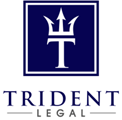Blog
ICE Preparation and Response Plan: Business Resource Guide
This resource is designed to help businesses prepare for and respond to visits from U.S. Immigration and Customs Enforcement (ICE) or other Department of Homeland Security (DHS) officials in a calm, lawful, and professional manner. It is intended as practical business guidance focused on workplace operations, safety, and risk management....
Beyond Equity: A Practical Guide to Employee Incentive Options for Small Businesses and Startups
Attracting and keeping great talent is one of the biggest challenges for small businesses and startups. Many employers think equity is the only meaningful incentive they can offer, but that is not the case. There are many creative, flexible, and legally sound ways to reward and motivate employees without giving...
Understanding Capital Contributions and Capital Accounts
When forming a new company, owners usually make an initial capital contribution. This is simply the money or property you put into the business to get it started. It is recorded in your capital account for bookkeeping and ownership purposes, but it does not need to be kept as a...
10 Ways Small Businesses Can Finish the Year Strong
The final weeks of the year offer an important opportunity for small businesses to realign, refresh, and set the stage for success in 2026. This is the perfect moment to pause, reflect on your progress in 2025, and make intentional decisions that position your business for a strong start in...
Small Business Saturday: A Guide to Shopping Small
Small Business Saturday is more than a clever hashtag. It grew out of a real need to support local entrepreneurs during the holiday rush, especially after the Great Recession. Launched in 2010 by American Express and later co-sponsored by the U.S. Small Business Administration, it has become a nationwide movement...
Veteran-Owned Business Certifications
For veteran entrepreneurs, obtaining a Veteran-Owned Small Business (VOSB) or Service-Disabled Veteran-Owned Small Business (SDVOSB) certification can be a powerful way to leverage your service, leadership, and commitment into business opportunity. These certifications demonstrate ownership diversity, provide credibility in competitive procurement markets, and open access to exclusive contracting programs at...
Women-Owned Business Certifications
For women entrepreneurs, obtaining a Women-Owned Business (WOB) certification can be a strategic and empowering step toward growth, credibility, and opportunity. These certifications are designed to help businesses gain visibility, demonstrate ownership diversity, access new sources of capital, and qualify for both public and private contracting programs. They also open...
Profit Sharing Plans vs. Phantom Equity: Key Differences and Considerations
Both profit-sharing plans and phantom equity offer ways for businesses to incentivize employees and share financial success. However, they operate differently in terms of structure, taxation, and legal implications. Below, we explore their key differences and considerations for choosing the right option for your business. Key Differences Between Profit Sharing...
Understanding the Difference Between a PLLC and an LLC in Massachusetts
When forming a business, professionals in Massachusetts often wonder whether they need a Professional Limited Liability Company (PLLC) or a standard Limited Liability Company (LLC). While both structures offer limited liability protection and flexible management, they serve different purposes, particularly when it comes to licensed professionals. What is a Limited...
UPDATE (1/5/2025): Government Appeals Corporate Transparency Act (CTA) Injunction to the U.S. Supreme Court
Well never a dull day as we follow the cases and ongoing changes to compliance requirements for the CTA. After the back and forth regarding an injunction temporarily halting (reinstating and halting again) certain reporting requirements by a federal court, the U.S. government has appealed this injunction to the U.S....
